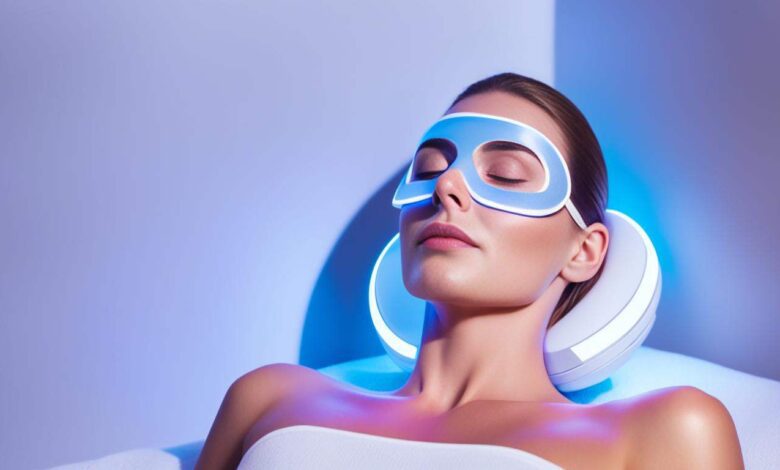
Acne is a common skin concern that affects millions worldwide, not only impacting appearance but also affecting confidence and overall well-being. For those grappling with acne, the skincare journey can be filled with trial and error. Among the many remedies available, face masks stand out as a popular, non-invasive, and often relaxing treatment option. By targeting oil control, inflammation, and bacteria, the right face mask can be a powerful tool in the fight against acne. In this guide, we’ll explore the different types of face masks, their benefits, and how to choose the one that’s best for your skin.
1. Understanding Acne and How Face Masks Help
Acne is primarily caused by excess oil production, clogged pores, bacterial buildup, and inflammation. Hormones, stress, diet, and genetics can all contribute to acne development. Effective acne treatment focuses on controlling oil, keeping pores clean, and reducing inflammation. Face masks designed for acne are formulated with ingredients that address these issues, often incorporating antibacterial, anti-inflammatory, and oil-absorbing properties.
The beauty of face masks is that they can deliver concentrated ingredients that penetrate the skin, making them an effective addition to any acne treatment regimen. While face masks alone may not completely cure acne, they can reduce breakouts, improve texture, and support clearer, healthier-looking skin.
2. Types of Face Masks for Acne-Prone Skin
There are several types of face masks suited for acne-prone skin, each offering unique benefits. Here’s a breakdown of some of the most effective options:
a) Clay Masks
Clay masks, especially those containing kaolin or bentonite clay, are excellent for acne-prone skin because they absorb excess oil, clear out impurities, and reduce pore size. Bentonite clay, in particular, has a negative charge, which helps pull out positively charged toxins from the skin. Clay masks are best for oily and combination skin types but may be too drying for those with sensitive or very dry skin.
Best For: Reducing oil, detoxifying pores, and preventing blackheads and whiteheads.
b) Charcoal Masks
Charcoal is known for its ability to absorb toxins and impurities, making it an effective ingredient in acne-fighting masks. Activated charcoal, which is processed to increase its absorbency, is often used in face masks to pull out dirt and bacteria from deep within the pores.
Best For: Detoxifying and decongesting skin, particularly in the T-zone where oil tends to accumulate.
c) Salicylic Acid Masks
Salicylic acid is a beta hydroxy acid (BHA) that penetrates the pores to dissolve oil and dead skin cells. This makes it a powerful acne-fighting ingredient that can prevent future breakouts and keep pores clear. Masks with salicylic acid are ideal for acne-prone skin, as they target the root cause of acne: clogged pores.
Best For: Preventing breakouts, treating blackheads, and exfoliating the skin.
d) Sulfur Masks
Sulfur is a lesser-known but effective ingredient in acne treatment. It has antibacterial properties that reduce acne-causing bacteria and help with excess oil production. While sulfur can have a strong smell, it’s very effective for clearing up mild to moderate acne.
Best For: Reducing redness and irritation, treating mild acne, and balancing oily skin.
e) Hydrating Masks with Hyaluronic Acid
It may sound counterintuitive to hydrate acne-prone skin, but hydration is essential to maintain a healthy skin barrier. Dryness can lead to more oil production as the skin tries to compensate, resulting in more breakouts. Hydrating masks containing hyaluronic acid can keep the skin hydrated without clogging pores or causing breakouts.
Best For: Preventing dryness and irritation, supporting the skin barrier, and balancing hydration levels.
f) Tea Tree Oil Masks
Tea tree oil is a natural antibacterial and anti-inflammatory ingredient that’s gentle on the skin. Face masks with tea tree oil can help reduce redness and swelling associated with acne. It’s also effective in reducing bacteria on the skin’s surface without the harshness of some chemical treatments.
Best For: Reducing redness, soothing inflamed skin, and fighting acne-causing bacteria.
3. Key Ingredients to Look for in Acne-Fighting Masks
Knowing which ingredients to look for can make finding an effective face mask easier. Here are some common ingredients in acne-fighting masks and what they do:
- Salicylic Acid: Exfoliates the skin, unclogs pores, and reduces oil buildup.
- Benzoyl Peroxide: A powerful antibacterial agent that targets acne-causing bacteria. It’s more common in leave-on treatments but may also be found in wash-off masks.
- Niacinamide: Known for its anti-inflammatory properties, niacinamide can reduce redness, minimize pores, and balance oil production.
- Green Tea Extract: Contains antioxidants that help soothe and reduce inflammation, making it ideal for sensitive acne-prone skin.
- Witch Hazel: A natural astringent that helps tighten pores, reduce oil, and soothe irritation.
- Vitamin C: An antioxidant that brightens skin and helps with post-acne marks, making it a good ingredient for overall skin health.
4. Choosing the Right Face Mask for Your Skin Type
Choosing a face mask that suits your skin type is crucial for getting the best results. Here’s a quick guide based on different skin types:
- Oily Skin: Clay and charcoal masks work well to absorb excess oil and keep pores clear. Look for masks with ingredients like salicylic acid to help reduce acne.
- Combination Skin: Use clay or charcoal masks on oily areas and hydrating masks on drier areas. This can balance out the skin and prevent irritation.
- Dry Skin: Hydrating masks with ingredients like hyaluronic acid, glycerin, and niacinamide can keep your skin moisturized. Avoid overly drying masks.
- Sensitive Skin: Look for masks with soothing ingredients like aloe vera, green tea, and chamomile. Avoid masks with high concentrations of salicylic acid or benzoyl peroxide, as they can be irritating.
5. How to Use Face Masks Safely and Effectively
To get the most out of your face mask, follow these tips for safe and effective use:
- Start Slowly: If you’re new to acne masks, start by using the mask once a week to see how your skin reacts.
- Cleanse First: Always start with a clean face to ensure the mask can penetrate and do its job.
- Avoid Overuse: Masks can be drying, so avoid using them more than two to three times per week unless directed otherwise.
- Moisturize After: Follow up with a moisturizer to replenish hydration and protect the skin barrier.
- Don’t Leave on for Too Long: Leaving a mask on for too long can lead to dryness or irritation. Follow the recommended time on the product label.
6. DIY Face Masks for Acne
If you prefer a natural approach, try some DIY face masks with ingredients you might already have at home. Here are a couple of easy recipes:
- Honey and Turmeric Mask: Mix 1 tablespoon of honey with 1/2 teaspoon of turmeric powder. Apply to the face for 10-15 minutes, then rinse. Honey has antibacterial properties, and turmeric is anti-inflammatory, making this a gentle option for acne-prone skin.
- Aloe Vera and Tea Tree Oil Mask: Mix 1 tablespoon of pure aloe vera gel with 2-3 drops of tea tree oil. Apply and leave on for 10 minutes before rinsing. Aloe vera soothes irritation, while tea tree oil fights bacteria.
7. What to Avoid in Face Masks for Acne-Prone Skin
While many face masks are great for acne, some ingredients can be problematic:
- Heavy Oils: Coconut oil and similar heavy oils can clog pores and worsen acne.
- Fragrances and Dyes: These can be irritating and may lead to more inflammation.
- Alcohol: High alcohol content can be drying, leading to more oil production as your skin tries to compensate.
Conclusion
Using face masks for acne can be a valuable addition to your skincare routine, offering targeted benefits that support clearer, healthier skin. By choosing masks with ingredients like clay, salicylic acid, and tea tree oil, you can effectively manage oil, reduce inflammation, and prevent breakouts. Remember to select a mask that suits your skin type, and avoid overuse to prevent irritation. With the right face mask, you can enjoy clearer skin and the confidence that comes with it.




